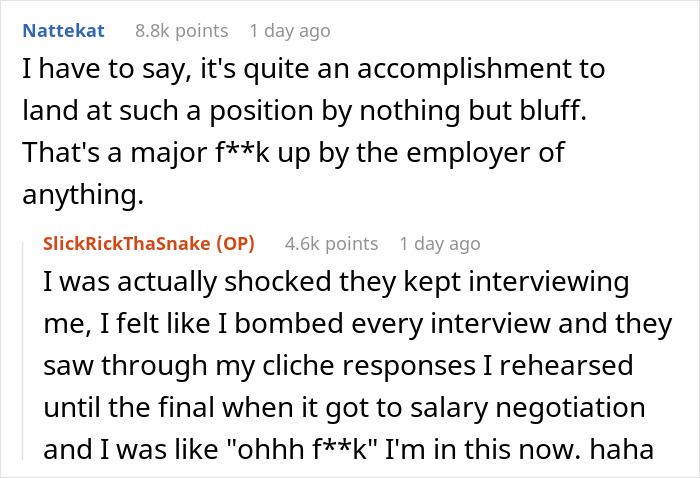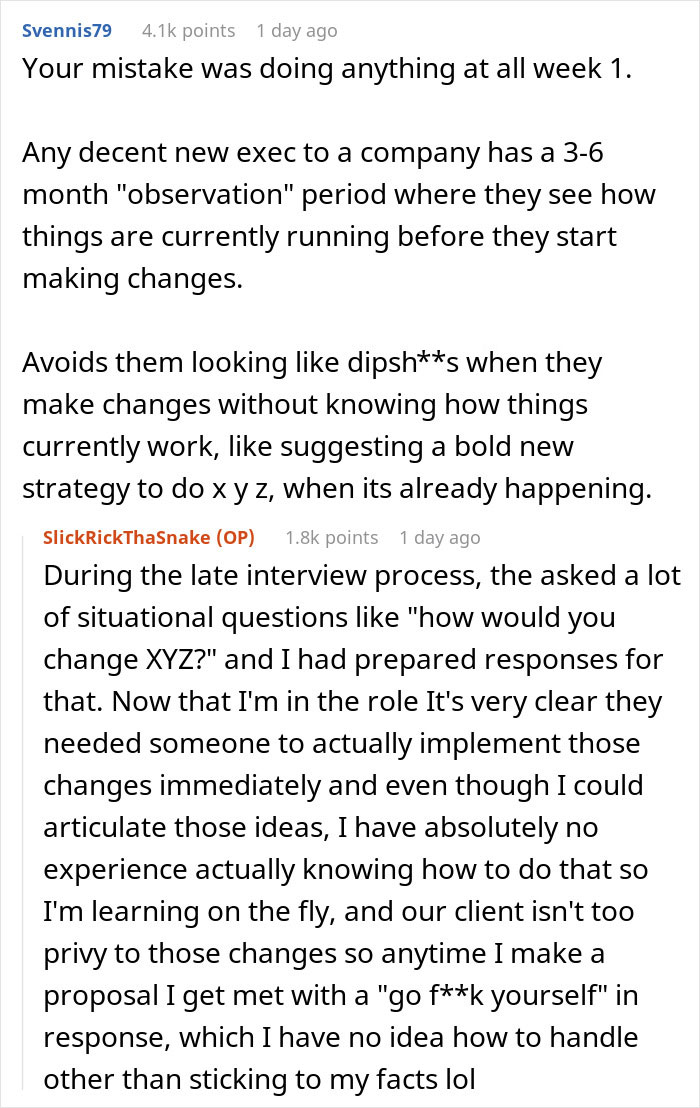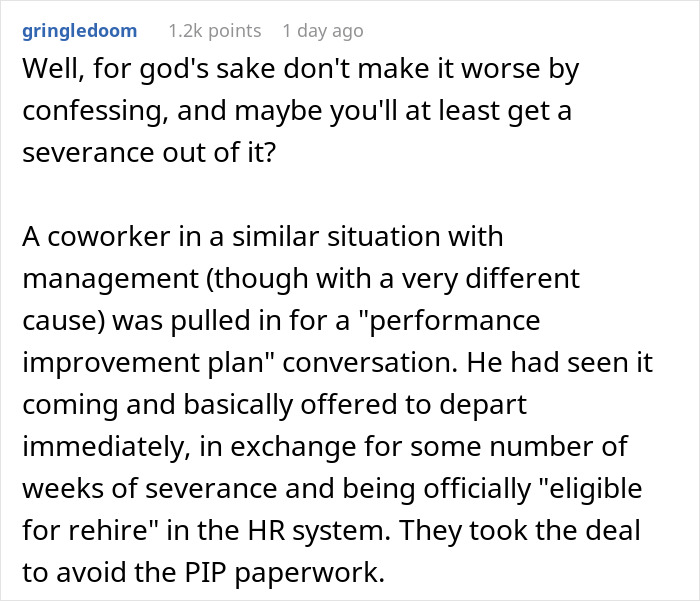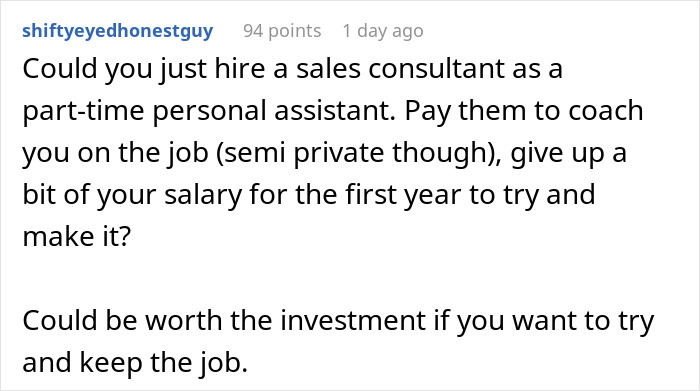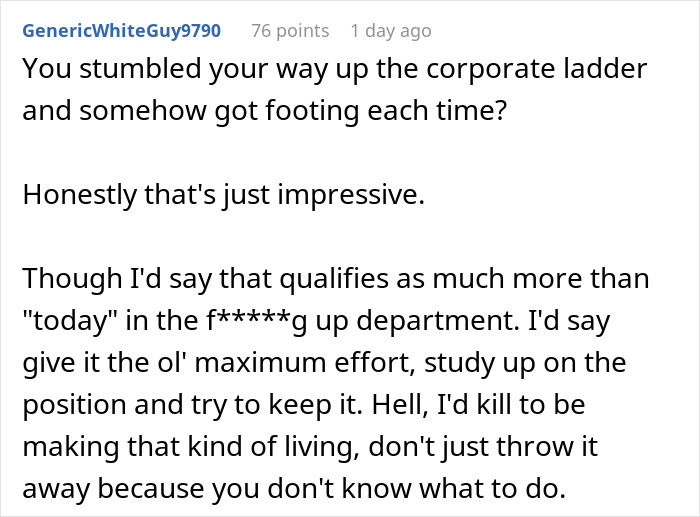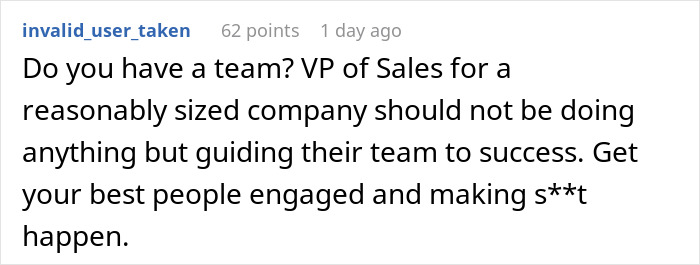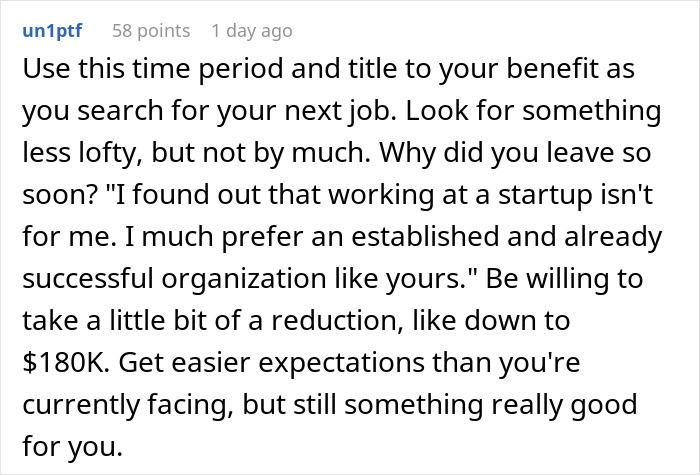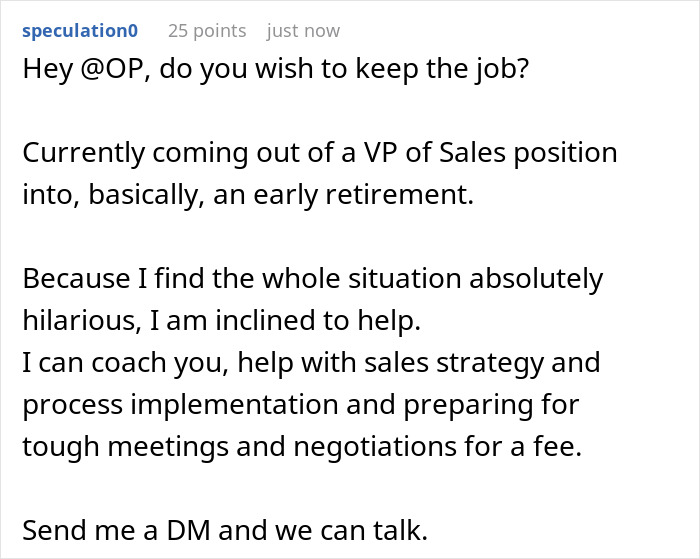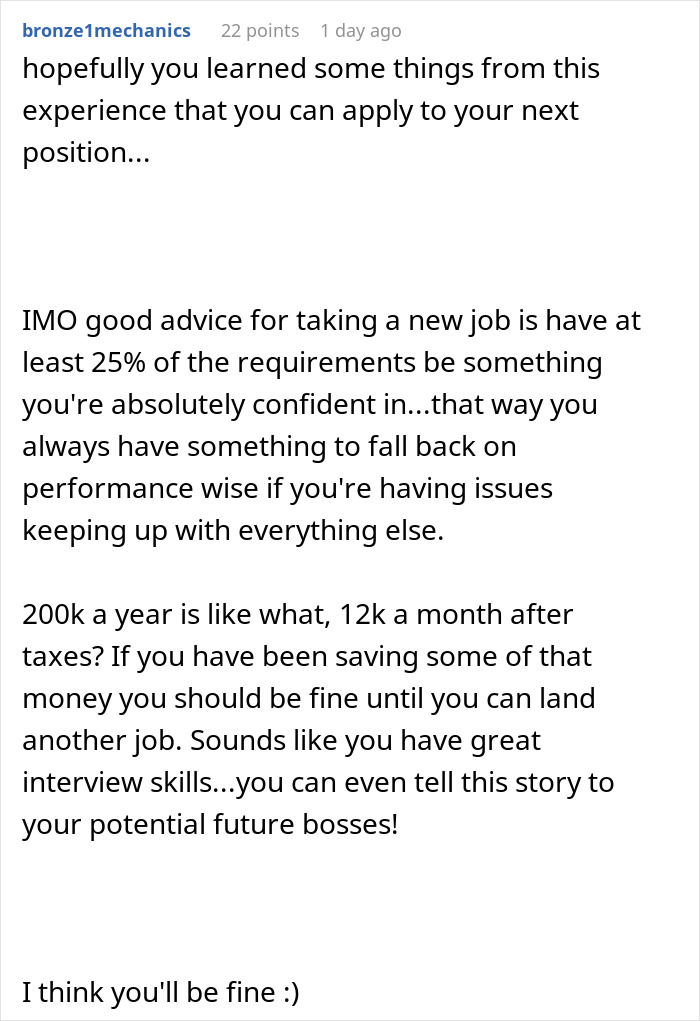Who among us hasn’t told a little white lie or two in our resumes? Apparently, not a lot of us. One survey in 2023 found that 70% of workers present themselves in a more flattering light to get a job. Most professionals embellish their previous job titles and responsibilities.
But this person girlbossed too close to the sun when they sweet-talked their way into a senior-level position. The problem was that when it came to actually doing the job, they lacked the experience and the skills. So, panicked and anxious, they went to vent about their mishap online, where people were gracious enough to offer some much-needed words of encouragement and advice.
To know more about the “fake it ’til you make it” concept, Bored Panda reached out to manager trainer and the founder of Manager Method, Ashley Herd. She told us more about how such a situation might fare in a real-world corporate setting and how companies can avoid hiring individuals who are not up for the task. Read her expert insights below!
People embellish the truth on their resumes, but this person perhaps went a bit too far

Image credits: seventyfourimages / envatoelements (not the actual photo)
They got hired for a position for which they had no experience or skills for
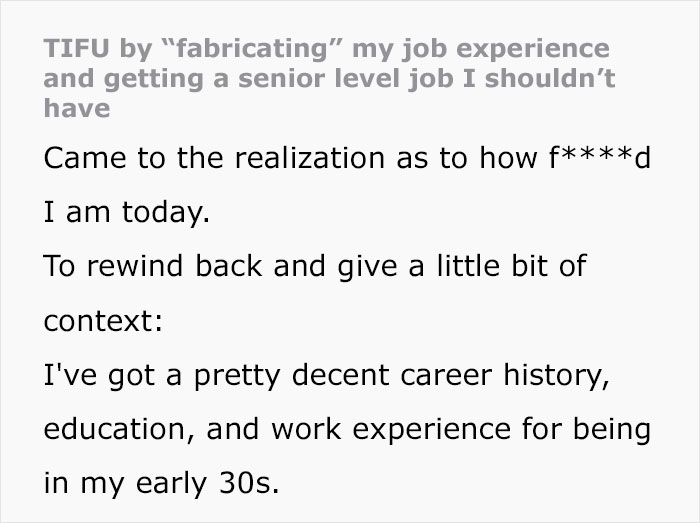
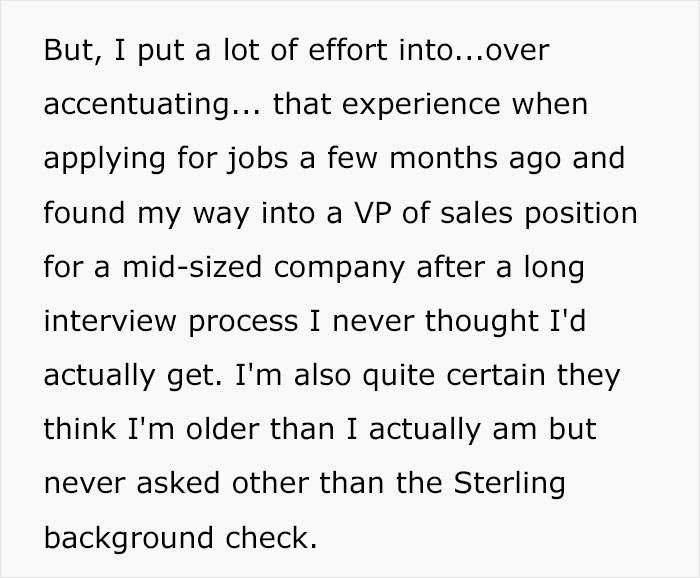
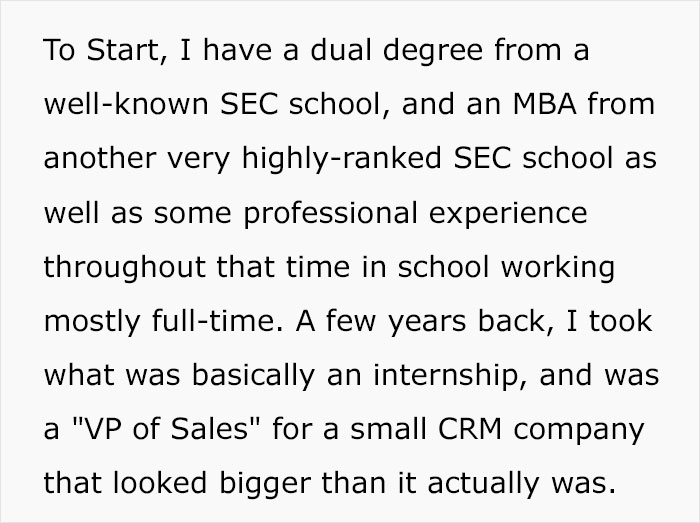
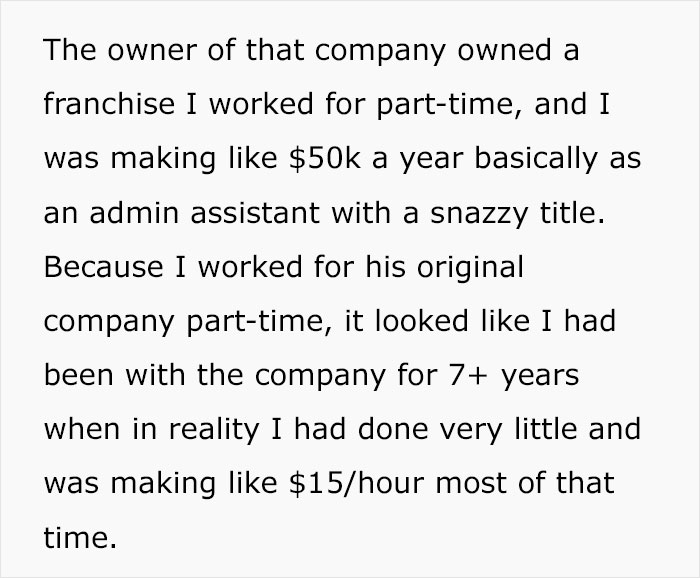
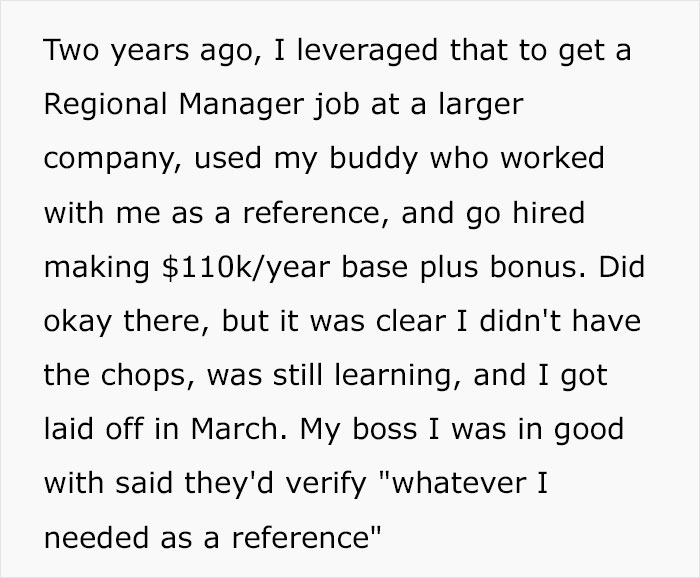
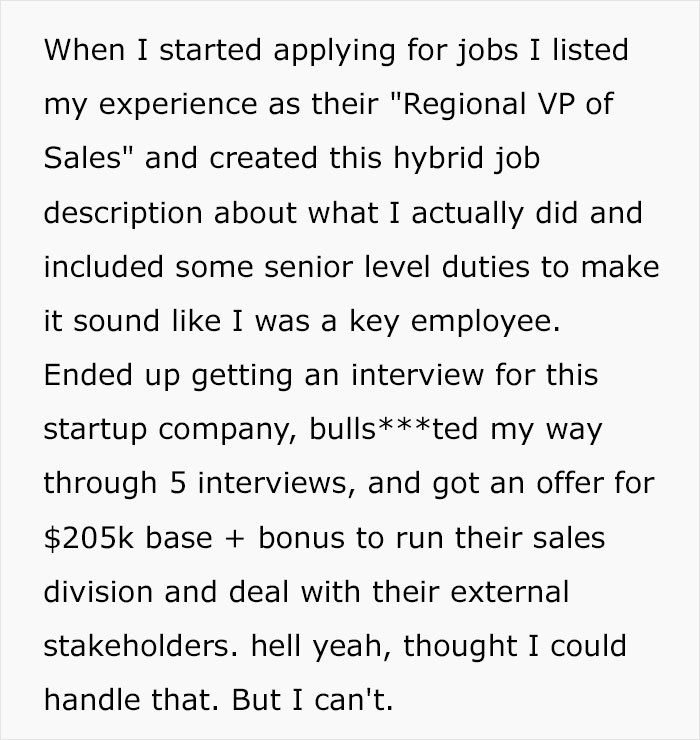

Image credits: dekddui1405 / envatoelements (not the actual photo)
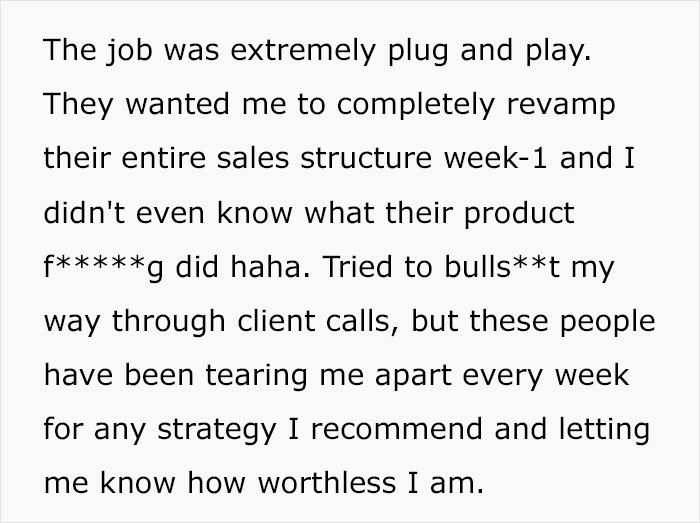
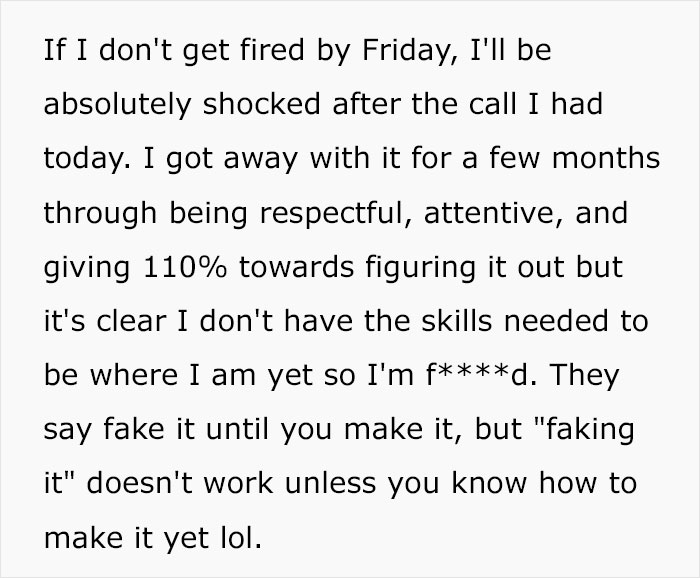
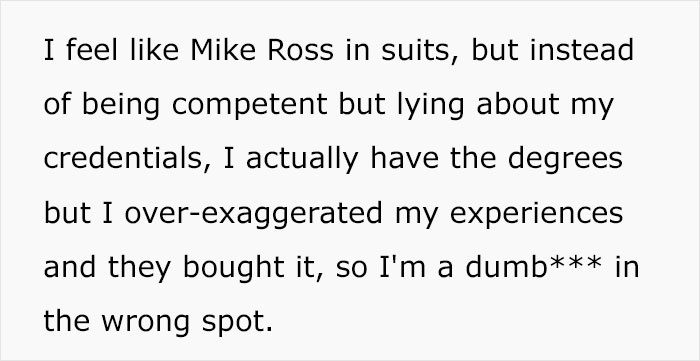
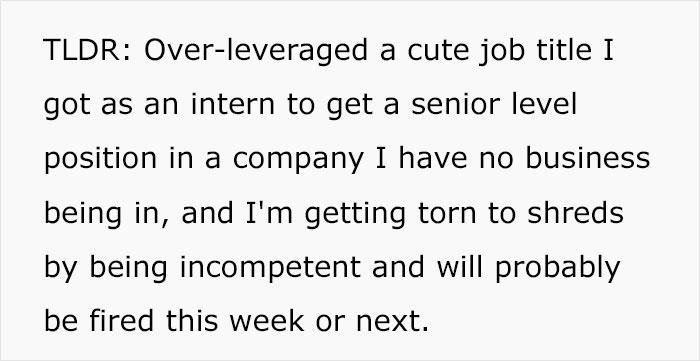

Image credits: Pressmaster / envatoelements (not the actual photo)
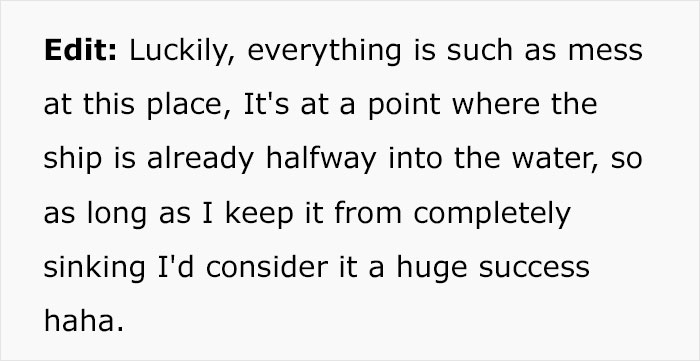
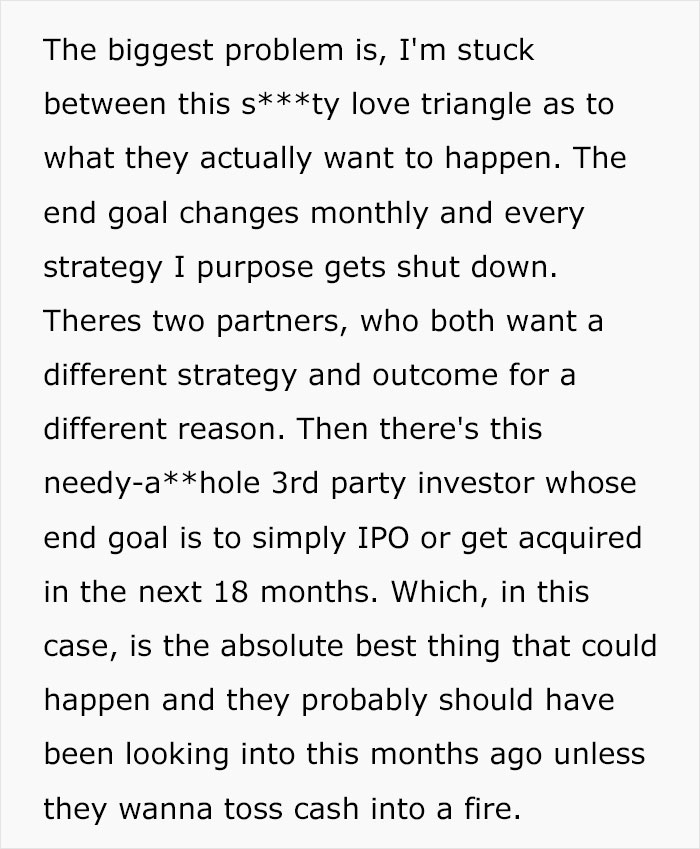
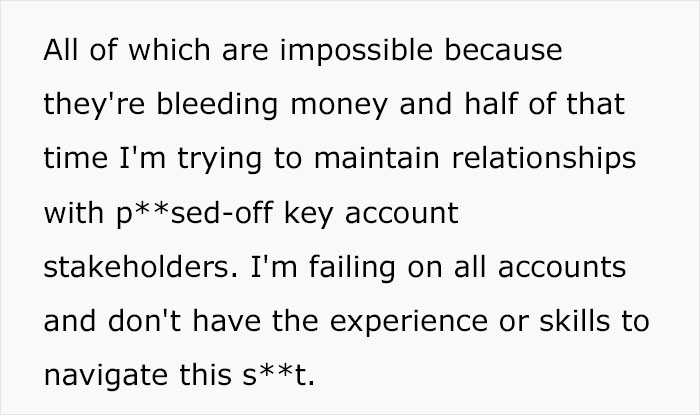
Image credits: SlickRickThaSnake
People who fake qualifications often are doing themselves a disservice in the long run

Image credits: Mizuno K / pexels (not the actual photo)
When it comes to faking it ’til you make it in a real-world corporate setting, manager trainer Ashley Herd thinks there are two possible scenarios. “The first is when someone applies for a job they might not be fully qualified for but have the potential to succeed in.”
“Often, they doubt themselves and hold back from applying or are unconfident in the interview process,” she says. “In these cases, I encourage people to tap into their inner confidence and grow into the role. Think of yourself as clay and that you have the basic shape; you just need molding over time.”
If the second scenario when someone accepts a position for which they have no skills and experience (which was what happened in this story) happens, faking it won’t get the person far. “When someone takes on a position for which they are completely unqualified – like being hired as an expert on a software platform they’ve never actually used, ‘faking it’ isn’t just unwise; it’s a disservice to the team and the company,” Herd says.
“And to you because it’s a very small world. It’s important to recognize the difference between stretching your abilities and misrepresenting your expertise,” she explains. “The former can lead to growth, while the latter can lead to failure and lost credibility.”
To avoid tricksters like this, recruiters can consult current team members and the candidate’s prior employees

Image credits: Anna Shvets / pexels (not the actual photo)
We also asked Ashley Herd what recruiters can do to avoid mishaps such as this one. She says that when companies experience something like this, they might put extra protections in place.
“When companies have experienced hiring someone who wasn’t qualified or have heard about it, they often overcorrect by requiring candidates to complete lengthy tests or detailed example projects,” she says. “While the intent is understandable, these practices can end up driving strong candidates out the door (out of your interview process).”
What does she recommend instead? To speak directly with current team members who know the role well. “Ask them what’s truly important in the position and what the job really involves. Then, either include these team members in the interview process or use their insights to craft specific questions like, ‘How would you approach XYZ?'”
Herd explains that this way, recruiters can gauge a candidate’s true fit and knowledge. “Particularly from the perspective of those they’ll work with closely,” she adds. “At times, you’ll find people greatly inflate their responsibilities on LinkedIn or their resume.”
“While some prior employers will only provide minimal details of employment, others will be honest if you ask, ‘I see (NAME) was the #1 account rep and promoted to have a team of 75 under them,’ especially if that person was a poor performer and never had any direct reports.”
“Advancing in your career comes with an increase in responsibility,” Herd points out. “That can be uncomfortable, but soon, you’ll look back and say, ‘That’s easy.’ The most successful candidates build on their past experiences and clearly demonstrate how they’ll approach the challenges of their next role.”
“On the other hand, those who try to advance by exaggerating their past achievements usually get found out – and it rarely ends well.”
People told the author not to panic: “I’ve seen executives like you everywhere,” one person wrote
